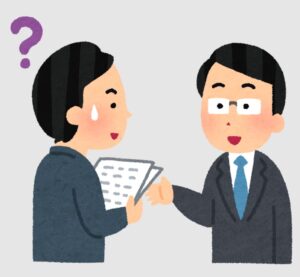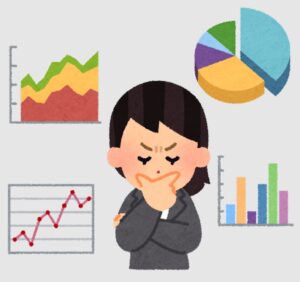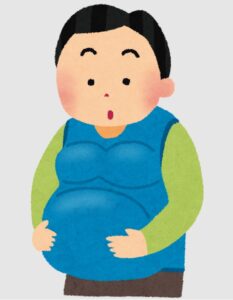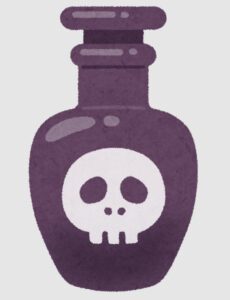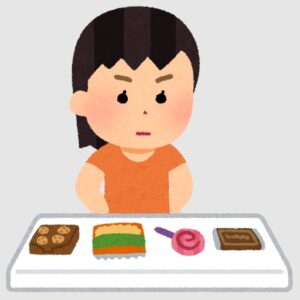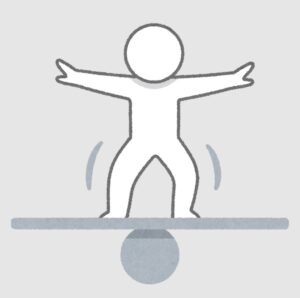管理人オススメコンテンツはこちら
「まさに絶望のデータ|“健康寿命”を信じると損する理由」
〜前回のつづき〜
●知っておくべき平均寿命と健康寿命の罠(つづき)
(2)健康寿命の罠
もう一つ紹介しておきたいのが
健康寿命の罠です。
実はこの数字
『どう測るか』がかなり曖昧なんです。
健康寿命とは医療や介護を受けずに
自立した生活を送れる年齢という事です。
厚生労働省によると
健康寿命は
男性:72歳
女性:75歳
確かにこれを見ると
不安になるのではないでしょうか?
なぜなら
平均寿命と健康寿命の差が
不自由な生活を送る期間とか
寝たきりの期間に
見えるからですよね。
何となくそんなイメージしますよね?
「生きる事は出来てるかもしれないけど
寝たきりの状態で10年生きてもなぁ・・・」
と不安になっちゃいますよね?
例えば
男性の場合だったら
平均寿命:81歳
健康寿命:72歳
の差は約10年間有るんですね。
この数字を使って
マーケティングしている
保険会社というのは
少なくないんですね。
保険の営業マンが
「この期間に備えて今のうちに
医療保険や介護保険に
入っておいた方がいいですよ!」
と営業トークに使う訳ですよね。
人生100年時代を前提とするのなら
不健康に生活する時は更に伸びて
30年近くに及ぶ。
まさに絶望のデータですよ。
ところが健康寿命というのは
割といい加減な概念なんですよね。
どういう事かというと
健康寿命の算定方法は
どのように計算されてるのかというのを
見てほしいんですけど
政府が3年ごとに行う
国民生活調査により
算定されるんですね。
全国
・30万世帯
・70万人
を対象にしたアンケート調査で
「あなたは現在健康上の問題で
日常生活に何か影響が有りますか?」
と聞くんですね。
有ると答えた人は
『不健康』に区分される。
「あなたの現在の健康状態はいかがですか?」
と聞いて
・良い
・まぁ良い
・普通
と答えた人以外は
『不健康』に区分される。
何の医学的根拠にも
基づかない
アンケートに答えた人の
主観的な意見を元に
この健康寿命というのが
大体計算されてるということに
なってくる。
例えば
私が起業当初の若かりし頃は
今より仕事のやり方が大分下手だったので
睡眠時間を削って
仕事に明け暮れてたんですね。
当時は寝不足で
調子が悪かったですね。
眠たいから
身体がずっと怠い訳ですよね。
もし当時
このアンケートが届いてたら
何の遠慮も無く
『健康上の問題が有る』と
答えてたと思うんですね。
こういう回答が
健康寿命の計算に
反映される訳ですね。
要するに健康寿命とは
国民の“自己申告”にすぎないんです。
医師の診断や医学的な検査結果に
基づいているわけではありません。
つまり
平均寿命 − 健康寿命 = 寝たきり期間
という解釈は誤りなんです。
実際には
『健康上の問題がある』と
感じる期間であって
生活のすべてが
不自由になるわけではありません。
健康寿命のデータを
参考にするのが
馬鹿馬鹿しくなってきますよね?
一つのデータとしては
当然わかりやすいし
概念としてもいいし
全く無意味とまでは言わないけど
これを元に
人生設計するのはイマイチな感じだ
というのはわかりますよね?
なので健康寿命を使って
マーケティングしてる
保険会社はろくなもんじゃないというのは
保険のデータに詳しい
有識者からしてみると
常識だという事で
この辺のデータも
データ自体に嘘は無いんだけれども
データをうまく活用するというのが
保険会社の
巧みなマーケティングなので
あなたも気をつけてください。
こんないい加減な概念で
未来の事を不安に思うよりも
-819x1024.jpg)
(出典:リベラルアーツ大学)
健康寿命を伸ばすように
今出来る事をやっていった方が
有意義ですよね。
・生活習慣を見直す
・ストレスをためない環境を身を置く
・予防医療を取り入れる
などなどこういった事で
予防とか早期発見で健康的で
長生き出来る確率が上がる。
だからこそ『健康寿命』という
曖昧な数字に振り回されるよりも
自分の健康寿命を
『自分で伸ばす』意識を持つ方が
建設的です。
〜〜〜つづく〜〜〜
Special Thanks college president Ryo.
●おまけ
≪≪perplexityちゃんによる文章まとめ≫≫
健康寿命とは、医療や介護に頼らず自立した生活を送れる年齢を指すが、その測定方法は曖昧だ。実際には厚生労働省の国民生活調査で「健康上の問題がありますか?」といった質問に自己申告で答えた結果から算出される。つまり、医学的な診断ではなく主観的なアンケート結果を基にしているにすぎない。
そのため「平均寿命−健康寿命=寝たきり期間」と解釈するのは誤りであり、不自由な生活期間を示す数字ではない。それにもかかわらず、保険会社はこの差を利用して不安をあおり、医療保険や介護保険加入を促す営業に使っている。健康寿命というデータ自体が嘘ではないものの、過剰に信じて人生設計を立てるのは危険だ。
不確かな数字に振り回されるよりも、生活習慣の改善やストレス軽減、予防医療などで自分自身の健康寿命を延ばす努力をする方がはるかに有益で建設的である。
- https://kennet.mhlw.go.jp/information/information/hale/h-01-001.html
- https://www.city.akashi.lg.jp/kansentaisaku/h-kensui/kenkouzyumyou.html
- https://medical.secom.co.jp/prevent/kenko/column/kenko_c10.html
- https://kennet.mhlw.go.jp/information/information/hale-summaries/h-01.html
- https://toukei.umin.jp/kenkoujyumyou/
- https://www.mhlw.go.jp/www1/topics/kenko21_11/s1.html
- https://www.osaka.med.or.jp/doctor/doctor-news-detail?no=20190515-2892-4&dir=2019
≪≪Chat-GPTくんによる英訳≫≫
~Continuation from the previous section~
【The Hidden Traps Behind “Average Life Expectancy” and “Healthy Life Expectancy” (continued)】
(2) The Trap of “Healthy Life Expectancy”
Another thing I want to point out is the trap of healthy life expectancy.
The truth is, this number is actually quite vague in how it’s measured.
Healthy life expectancy refers to the age up to which one can live independently without needing medical or nursing care.
According to Japan’s Ministry of Health, Labour and Welfare, the figures are:
Men: 72 years old
Women: 75 years old
Looking at these numbers, it’s only natural to feel uneasy, isn’t it?
Because the difference between average life expectancy and healthy life expectancy seems to represent the period of physical decline — a time when one might live with disabilities or even be bedridden.
That’s the kind of image it gives, right?
You might think,
> “Sure, I might still be alive, but living 10 years bedridden doesn’t sound great…”
That’s a worrying thought, isn’t it?
For example, if we take men:
Average life expectancy: 81 years
Healthy life expectancy: 72 years
That’s a gap of about 10 years.
And many insurance companies use this exact statistic in their marketing.
Insurance salespeople often say things like:
> “You should prepare for this period by getting medical or long-term care insurance now!”
And if we assume we’re in the so-called “100-year life era,”
the period of living in poor health could stretch to nearly 30 years.
That sounds like a pretty hopeless statistic, doesn’t it?
But the thing is — healthy life expectancy is actually a rather loose concept.
Let’s look at how it’s calculated.
It’s based on data from a national survey that the government conducts every three years.
This survey covers about:
300,000 households
700,000 people nationwide
The participants are asked questions like:
> “Do you currently have any health problems that affect your daily life?”
Those who answer “Yes” are categorized as ‘unhealthy.’
They’re also asked:
> “How would you describe your current health condition?”
Anyone who doesn’t answer ‘Good,’ ‘Fairly good,’ or ‘Average’
is also categorized as ‘unhealthy.’
So the data isn’t based on any medical evidence.
In other words, healthy life expectancy is calculated from people’s subjective self-reports, not from doctor’s diagnoses or medical tests.
For example —
when I first started my business, I wasn’t very good at managing my work.
I used to cut down on sleep and work around the clock.
Naturally, I was always tired and didn’t feel well.
If I had received that survey back then, I would have answered without hesitation:
> “Yes, I have health problems affecting my daily life.”
And that response would’ve been reflected in the healthy life expectancy calculation.
So, to put it simply, healthy life expectancy is nothing more than a national self-assessment.
It’s not medically determined.
Therefore, interpreting
> “Average life expectancy − Healthy life expectancy = Bedridden years”
> is completely incorrect.
In reality, that difference simply indicates the period during which people feel they have some health issues,
not necessarily a time when they can’t live independently.
Once you realize that, it becomes clear how pointless it is to take healthy life expectancy data at face value.
Of course, as a concept, it’s easy to understand and not entirely meaningless —
but it’s not something you should base your life planning on.
That’s why experts familiar with insurance data often say it’s common knowledge
that insurance companies which use “healthy life expectancy” in their marketing are not exactly honest players.
The data itself isn’t fake —
but the way it’s used and presented is part of the insurance industry’s clever marketing strategy.
So be careful not to be misled.
Instead of worrying about the future based on such a vague concept,
(Reference: Liberal Arts University)
it’s far more meaningful to focus on doing what you can now to extend your own healthy years.
For example:
Review and improve your daily habits
Stay in a low-stress environment
Practice preventive healthcare
These actions help with prevention and early detection — increasing your chances of living a longer, healthier life.
That’s why, rather than being swayed by this ambiguous number called “healthy life expectancy,”
it’s much more constructive to have the mindset of “extending your own healthy life expectancy yourself.”
Special Thanks OpenAI and Perplexity AI, Inc
.jpg)
